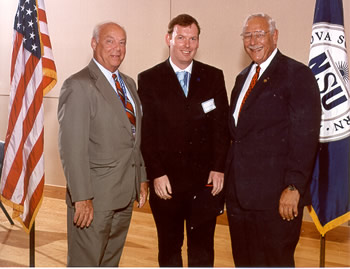The Development of a Dental Biocompatibility Screening Protocol as an Alternative to Animal Experimentation
Grant Winner
- Peter E. Murray, Ph.D. – College of Dental Medicine
Dean
- Robert Uchin – College of Dental Medicine
Abstract

The continual development of new products, and restorative procedures is necessary to benefit dental patients. New materials must always be evaluated for the hazards they can present to human health, prior to clinical use. This involves the use of biocompatibility screening-assays that consume millions of animals, worldwide, every year.
All new dental products, and treatment protocols must be evaluated according to biocompatibility screening guidelines 7405 and 10993, formulated and updated in 1997 by the International Organization for Standardization (ISO). The ISO recommended the development of new investigative approaches to serve as an alternative to live animal testing, but none, or few effective alternatives have been developed so far.
The purpose of this funding application is to provide support to develop a highly reproducible, and economical in vitro method for evaluating the biocompatibility and injurious effects of dental restorative procedures and materials utilizing extracted human teeth. The long-term goal of this study is to incorporate the use of extracted human teeth as a biocompatibility screening protocol into the ISO guidelines. The objective of this study is to utilize human in vitro tooth slice culture techniques as a biocompatibility screening method to meet the goals of replacement, reduction, refinement and responsibility as they relate to the use of animals in research, product testing and education. Analysis of variance, Chi-square, and Spearmans Rho statistical tests will be applied at a significance level of P<0.05. The development of in vitro tooth slice tissue culture testing will i) replace many animal experiments for product testing, ii) reduce the number and type of animal experiments necessary to evaluate products through refinement of the biocompatibility screening methodology, iii) propose changes to the ISO biocompatibility screening guidelines so that all companies, institutions and investigators are responsible for implementing guidelines to reduce animal testing.